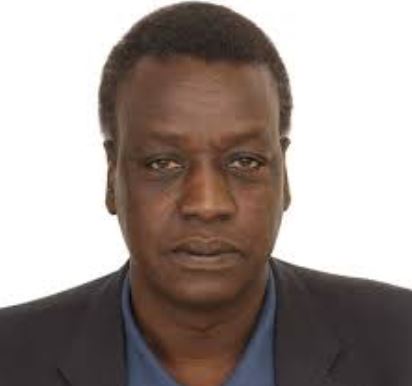Cabinet Affairs Minister Dr. Martin Elia Lomuro on Saturday during an extraordinary cabinet meeting presented the proposed amendment of extending the transitional period of the 2018 revitalized peace agreement and adjournment of elections which the Council of Ministers passed unanimously.
The extension of the government’s term in office and adjournment of elections now stare at a legal challenge because the procedures for the ratification of such proposed amendments and adjournment of general elections by the Transitional National Legislature of the R-ARCSS, according to the constitutional amendment procedures as set out in the TCRSS 2011 (amended), will require at least one month before the deliberations of such amendments as per Article 199 of the TRCSS, 2011 (amended) that states: “This Constitution (TCRSS, 2011 (amended)) shall not be amended unless the proposed amendment is approved by two-thirds of all members of each House of the National Legislature sitting separately and only after the introduction of the draft amendment at least one month before the deliberations.”
According to renowned Prof. Luka Biong Deng, who in the past served as presidential affairs minister, it will be difficult for the RTGoNU to meet the legal procedures of amending the TCRSS, 2011 (amended) by September 22, 2024, and subsequently, the elections by December 2024 will not be adjourned legally.
“This will leave the President with no option but to legally act on the provisions of sections 16 (2) and 16 (4) of the National Elections Act, 2012 (amended) to dissolve the national legislature, state legislative assemblies, the national government, state governments and governments of administrative areas and to retain his position and the positions of the five VPs,” he explains. “The President may have the right to appoint caretaking governments until elections are held and to allow for the conclusion of peace talks of the Tumaini Initiative.”
Prof. Biong said this legal crisis could have been avoided if the RTGoNU could have relied on the legal opinion of the Ministry of Justice and Constitutional Affairs.
“If the RTGoNU proceeds with a short and illegal procedure for amending the constitution, such a procedure is likely to be challenged by any concerned citizen in the relevant court of law in the country or the East African Court of Justice,” he warned.
On Thursday, National Elections Commission (NEC) Chairperson Prof. Abednego Akok while speaking during the release of a human rights report in Juba said the country was at a crossroads and that the Elections Act, which governs the conduct of elections, has not been amended.
“My dear youth, we are today at a crossroads, the number one role is that of the election commission which I have just told you (the government is going to dissolve) and we are now approaching September 22 and the decision must be taken,” he stated. “The other is the role of the revitalized peace agreement which says elections must be conducted 60 days before the end of the transitional period.”




